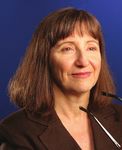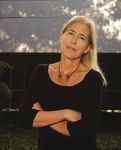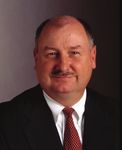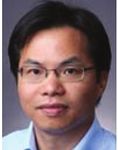EVIDENCE-BASED DESIGN BOOT CAMP - A RESEARCH INFORMED PRACTICE MODEL
←
→
Page content transcription
If your browser does not render page correctly, please read the page content below
Texas A&M University, College Station, Texas
Sept. 12-14 • Oct 24-26 • Feb 6-8 • Mar 20-22
REGISTRATION: $1700 per person, $1450 for each additional person from the same firm
FOR MORE INFORMATION: Contact Judy Pruitt at (979) 845-7009 or jpruitt@tamu.edu
EVIDENCE-BASED DESIGN Se
BOOT CAMP
pt.
EB 12
-14
D
•O
ct
BO
24
-26
•F
OT
eb
6-8
A RESEARCH INFORMED PRACTICE MODEL •M
CA
ar
20
-22
MP
OPEN TO: ARCHITECTS, ENGINEERS, DESIGNERS, PROJECT MANAGERS,
RESEARCHERS, TECHNOLOGY EXPERTS, LIBRARIANS, DEVELOPERS, AND
BUILDING OWNERS
Principal Faculty:
D. Kirk Hamilton, FAIA, FACHA, EDAC | Mardelle Shepley, D.Arch, AIA, LEED AP, EDAC
James W. Varni, PhD | Susan D. Rodiek, PhD, NCARB, EDAC | Zofia Rybkowski, PhD,
LEED AP | Xuemei Zhu, PhD | Zhipeng Lu, PhDSept. 12-14 • Oct 24-26 • Feb 6-8 • Mar 20-22 Page | 2
EBD BOOT CAMP
This is NOT a superficial conference presentation about theory...It is a unique no-nonsense,
limited attendance, hands-on work session with expert guides to help you actually use
relevant evidence to develop the real project on your desk today!
ADVANCE PREPARATION: Participants must bring current project information about a
project from their own practice. Boot Camp participants may bring projects of any building
type or market segment. Each participant will be coached through the evidence-based
practice model using an actual project from their firm. Clients and project locations need
not be identified.
Participants must be prepared to fully disclose the client’s project goals, the firm’s project
goals, and the top 2 or 3 key design issues for the project. If the firm has a model for
storage and retrieval of research materials, the participant should bring a printout of the
format.
It is strongly recommended that prior to arriving at Boot Camp participants read Chapters
1, 3, 13, 14, & 15 of Evidence-Based Design for Multiple Building Types by Hamilton
and Watkins published by Wiley & Sons in 2009. Other sources include: EDAC Study
Guide 1 (free) and Study Guide 2, along with A Practitioner’s Guide to Evidence-
Based Design available from The Center for Health Design at www.healthdesign.org
Several other advance readings will be provided by PDF upon registration.
TEAMS: Boot Camp welcomes small teams from the same organization. It is suggested,
however, that if possible, each participant bring a different project. Some activities will be
performed together as a team, and others will be performed independently.
CERTIFICATE: Attendees who complete the Boot Camp, perform the assigned work,
and pass the review exam will receive an Advanced Practitioner Certificate from the Center
for Health Systems & Design at Texas A&M University.
REQUIRED EQUIPMENT: All attendees should bring a laptop computer capable of
wireless internet connections that will be used for literature searches.
DRESS: This is an informal Boot Camp, not a professional conference. Dress will
accordingly be casual and suitable for a relaxed working meeting.
TRAVEL AND HOTEL ARRANGEMENTS: Participants need to make their own travel
and hotel arrangements. The work sessions will be at the Center for Health Systems &
Design located at Texas A&M University. Please contact Judy Pruitt for hotel information.
REGISTRATION: $1700 per person, $1450 for each additional person from the same firm
FOR MORE INFORMATION: Contact Judy Pruitt at (979) 845-7009 or jpruitt@tamu.eduSept. 12-14 • Oct 24-26 • Feb 6-8 • Mar 20-22 Page | 3 EBD BOOT CAMP AGENDA DAY ONE: 10:00AM – 4:30 pm (IN CHSD CONFERENCE ROOM) 10:00 am – 10:30 am Introductions Mardelle Shepley & Kirk Hamilton 10:30 am – 11:30 am Key design issues converted to research questions – ask the right questions: Susan Rodiek 11:30 am – 12:30 pm Search for sources and relevant information – where to find it: Xuemei Zhu 12:30 pm – 1:30 pm LUNCH 1:30 pm – 2:30 pm Project initiation and data requests – getting started early - Kirk Hamilton 2:30 pm – 3:30 pm Project goals for client and firm – know what is expected – Kirk Hamilton 3:30 pm – 4:15 pm Making EBD financially feasible: Overcoming the hurdle of first cost - Zofia Rybkowski 4:15 pm – 4:45 pm Evaluating resources – recognizing good studies – Mardelle Shepley 4:45 pm – 6:45 pm Finding evidence – Kirk Hamilton, Zhipeng Lu (joining at 5:30) and graduate students Homework: Find relevant evidence for your project’s key design issues (Kirk Hamilton and graduate students assist on-line searches) DAY TWO: 8:30AM – 4:30 pm (IN CHSD CONFERENCE ROOM) 8:30 am – 10:30 am Report on the search – share what you found – Kirk Hamilton 10:30 am- 11:30 am What does it all mean? - summarizing research – Mardelle Shepley 11:30 am – 12:45pm College of Architecture Health Lecture Series 12:45 pm to 1:30 pm LUNCH 1:30 pm – 2:30 pm Focus Groups – Zhipeng Lu 2:30 pm to 3:30 pm Practitioner focused facility evaluation - Mardelle Shepley 3:30 pm to 4:30 pm Framing and recording design hypotheses – document the intended outcomes: James Varni (April 19) / Mardelle Shepley (April 4) Homework: Write up the implications, hypotheses, and measures for your project DAY THREE: 8:30AM – 1:30 pm (AT HOTEL) 8:30 am -9:30 am Reporting to the client, design team, and field – effective sharing – Shepley/Hamilton 9:30 am -10:30 am Storage and retrieval of relevant information – ability to find it again – Hamilton/Rodiek 10:30 am – 11:15 am Feedback methods to the organizations, client, and firm – how to benefit – Hamilton/Rodiek 11:15 am – 12:00 pm Boot Camp review exam – a brief review of the model – Hamilton/Rodiek 12:00 pm to 12:30 pm LUNCH 12:30 pm – 12:45 pm Closing and Presentation of Certificates – all available faculty (Lu, Rybkowski, Varni, Zhu. Rodiek, Shepley, Hamilton) MEALS: Continental breakfast, coffee breaks and a light lunch will be provided. Breakfast and dinners are on your own. There are several restaurants within walking distance.
Sept. 12-14 • Oct 24-26 • Feb 6-8 • Mar 20-22 Page | 4
EBD BOOT CAMP
FACULTY PROFILES
D. Kirk Hamilton, FAIA, FACHA, EDAC is a Professor of Architecture at Texas A&M University
and a doctoral student at Arizona State University. His research focus is the relationship of evidence-
based health facility design to measurable organizational performance. He directs the Texas A&M
Evidence-Based Design Research Lab, is a board certified healthcare architect, and a founding
principal emeritus of WHR Architects. He is a past president of the American College of Healthcare
Architects and the AIA Academy of Architecture for Health. He served on the board of The Center for
Health Design for more than two decades and is co-editor of the peer-reviewed Health Environments
Research & Design Journal (HERD).
Mardelle Shepley, D.Arch, AIA, LEED AP, EDAC is a registered architect and researcher specializing
in healthcare design. Co-author of Healthcare Environments for Children and their Families, she has
published multiple articles and presented at conferences internationally. Dr. Shepley received B.A. and
M.Arch. degrees from Columbia University and an M.A. (psychology) and D.Arch. from the University
of Michigan. A member of the American College of Healthcare Architects, she has practiced in New
York, Panama, Michigan and California. Professor Shepley is currently Associate Dean for Student
Services and Associate Director of the Center for Health Systems & Design at Texas A&M University
(TAMU). Her current research focuses on pediatric intensive care.
James W. Varni, PhD is a recognized expert on measurement instrument development, conceptual
models, and cognitive-behavior therapy interventions. He has developed many of the best recognized
and most emulated evidence-based design hypotheses and measurement models. Dr. Varni received
his Ph.D. from the Department of Psychology at the University of California, Los Angeles in 1976,
and was a Postdoctoral Fellow in Pediatric Psychology in the Department of Pediatrics at the Johns
Hopkins University School of Medicine in 1976-77. He is currently a Professor in the College of
Architecture (Department of Landscape Architecture and Urban Planning) and the College of Medicine
(Department of Pediatrics) at Texas A&M University.
Susan D. Rodiek, PhD, NCARB, EDAC is a nationally-registered architect with over twenty years’
experience, who teaches architecture in the renowned health design program at Texas A&M University.
Her research is focused on issues of aging and the built environment, with an emphasis on quality of
life issues in senior residential care. She has published widely in scholarly and professional journals,
and has twice won the “best paper of the year” award (2006 and 2008) from the Seniors Housing
and Care Journal, published by NIC, the National Investment Center for the Seniors Housing & Care
Industry.
(Profiles continued on page 5)Sept. 12-14 • Oct 24-26 • Feb 6-8 • Mar 20-22 Page | 5
EBD BOOT CAMP
FACULTY PROFILES
Xuemei Zhu, PhD, B.Arch is an Assistant Professor in the Department of Architecture at Texas A&M
University. Dr. Zhu is interested in health community design, non-motorized transportation, and public
health; healthcare facility design; and general environment-behavior research as well as its application
with a focus on health, disparity, and sustainability.
Zhipeng Lu, PhD, M.Arch is a Lecturer in the Department of Architecture at Texas A&M University.
Dr. Lu’s interests include health facility design, housing for the elderly, healthy community planning,
environmental psychology, and design communication. Dr. Lu joined the faculty at Texas A&M in 2011.
Zofia Rybkowski, PhD is an Assistant Professor of Construction Science and a Fellow of the Center
for Health Systems & Design at Texas A&M University. She researches Life Cycle Costs Analysis
and Target Value Design within the context of Lean Construction and integrated Project Delivery
Contracts. She has worked directly with Dr. Glenn Ballard, co-founder and research director of the
Project Production Systems Laboratory (P2SL) and the Lean Construction Institute (LCI), non-profit
organizations dedicated to applying Lean theory. In addition to a PhD and MS in civil engineering at
UC Berkeley, Dr. Rybkowski holds advanced degrees from the Hong Kong University of Science and
Technology, Harvard, Brown and Stanford—in civil engineering, architecture and biology. She has
worked as an architectural designer and researcher for American, Japanese and Chinese Universities
and architectural design firms. She is also LEED AP certified.
*Other guest faculty may be invited.
TO REGISTER:
Visit https://centerforhealthdesign.wufoo.com/forms/p7p5q9/
Each session is strictly limited to the first 8 attendees to register.
Registration fee is $1700 per person, and $1450 for each additional person from the same firm.
CONTACT:
Judy Pruitt
(979) 845-7009
jpruitt@tamu.eduYou can also read


























































